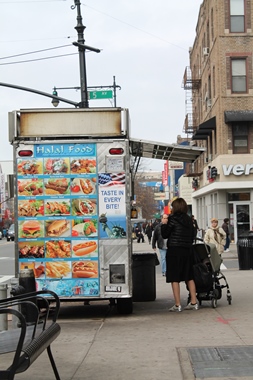Brooklynites disagree on food vendor legislation

BROOKLYN MEDIA GROUP/Photo by Denise Romano
BY HEATHER J. CHIN AND DENISE ROMANO
The City Council passed a package of legislation that would reduce fines for mobile street vendors on Wednesday, February 27, an action which is being called everything from “totally unfair” to “a major victory,” depending on who in the council you ask.
According to the new legislation, the maximum fine for vending violations would decrease from $1,000 to $500; the bill also would allow vending near hospital no-standing zones, taxi stands and within 20 feet of residential building exits.